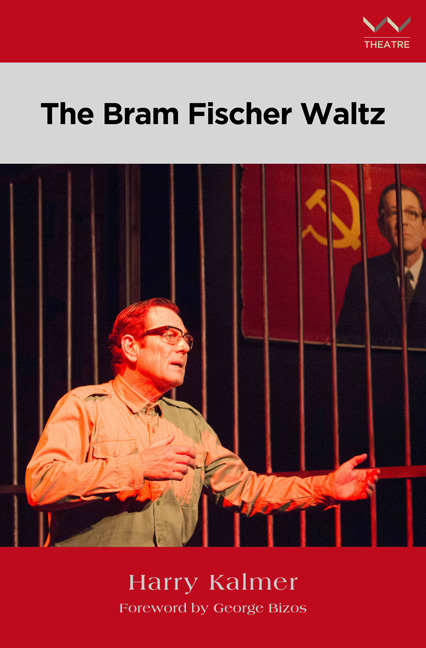Looking for Bram Fischer
Published online by Cambridge University Press: 21 March 2018
Summary
In 1985 Barney Simon, co-founder of the Market Theatre, saw a runthrough of my first play, Bloed in die Strate [Blood in the Streets] (176 Interviews for Television).
Afterwards he commented that a script should serve as a springboard for a production, allowing the actors to leap. He felt that my staging of the play (a restaging of Jacqui Singer's 1984 production) did not do that.
It was a few days before opening night, and I suspect the entire production never got off the ground enough for the actors to reach the springboard.
To me, as a young playwright, working at the Market Theatre felt like being in the heart of South African theatre. In the Upstairs Theatre my white Anglo colleagues were doing Berkoff in British accents. Downstairs, our racially mixed play, combining two languages – 40% English, 60% Afrikaans – shared The Laager Theatre with the Zulu cast of Mbongemi Ngema's Asinamali.
It made me realise that South Africans, when we get to know each other, actually get along. One Friday we held the door so that the Berkoff cast could watch. On another night the entire Zulu-speaking cast of Asinamali, still dressed in their khaki prison uniforms, made up 90% of our audience.
Thirty years later I returned with The Bram Fischer Waltz to the venue where my friends had performed Berkoff. Barney Simon had died and the Upstairs Theatre had been renamed after him. Like the actors in Asinamali, David Butler, playing Bram Fischer, was dressed in prison khaki. At the back of my mind was Barney's advice: ‘A script should only be a springboard for actors and directors.’
This is probably one of the reasons why this script contains so few stage directions – I would like each production to use it as its own springboard.
As a director I always try to stay out of the actors’ way. Now that I am publishing my plays for the first time I realise this approach probably informs my theatre writing as well.
I was nine years old when Bram Fischer was arrested for the last time.
- Type
- Chapter
- Information
- The Bram Fischer Waltz , pp. 5 - 9Publisher: Wits University PressPrint publication year: 2016



